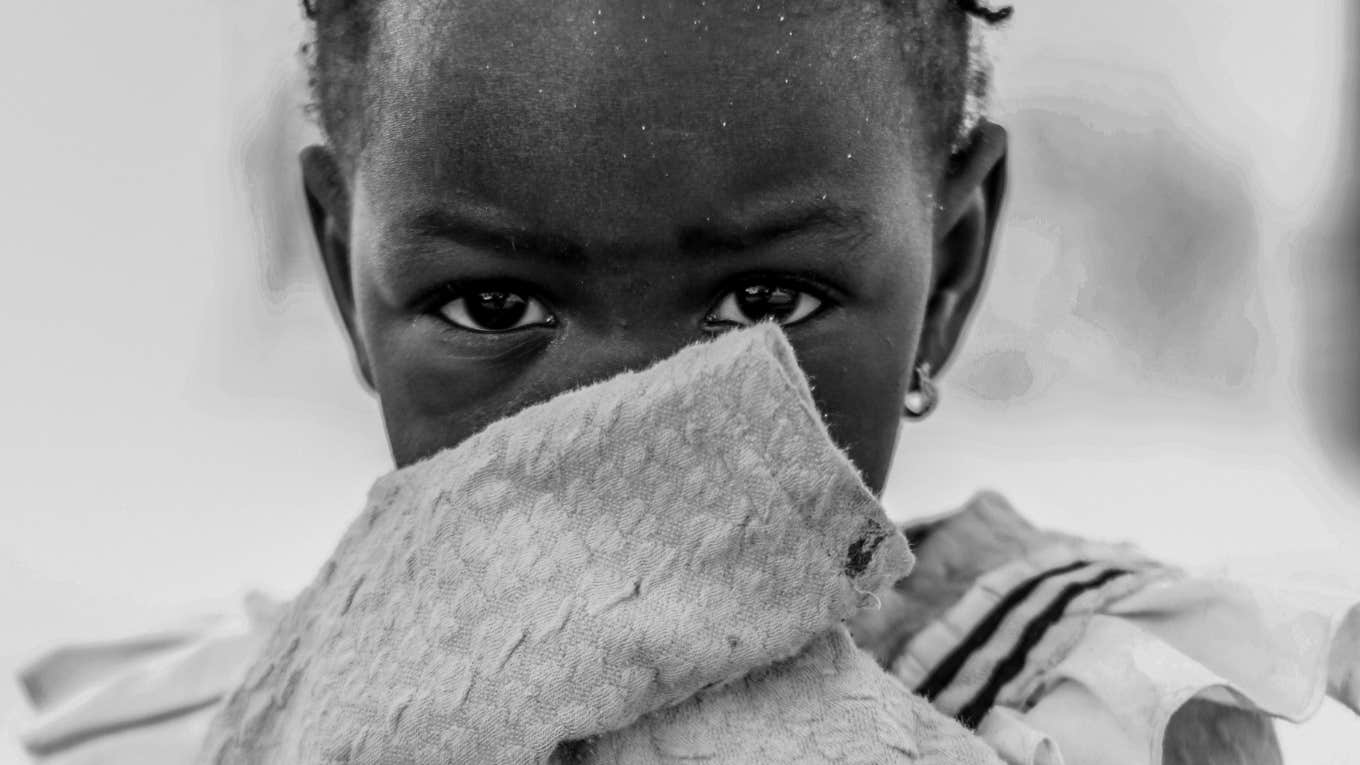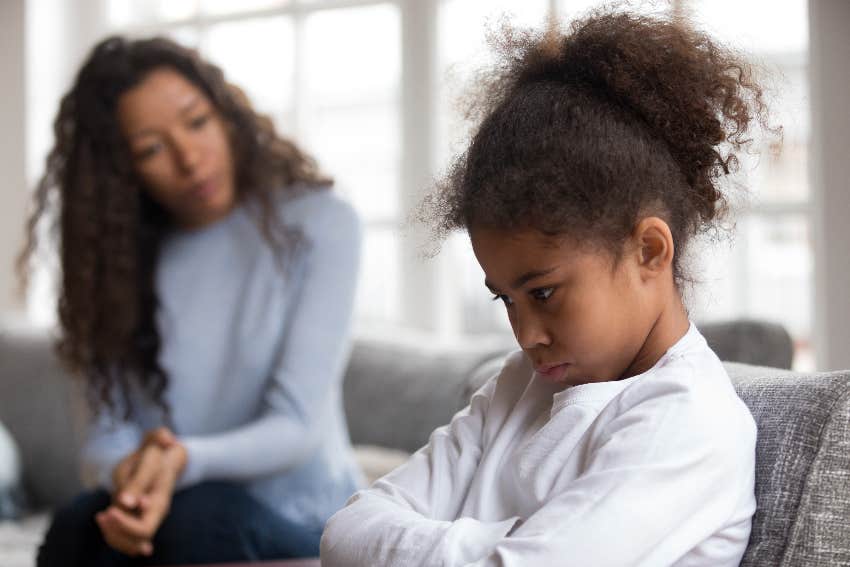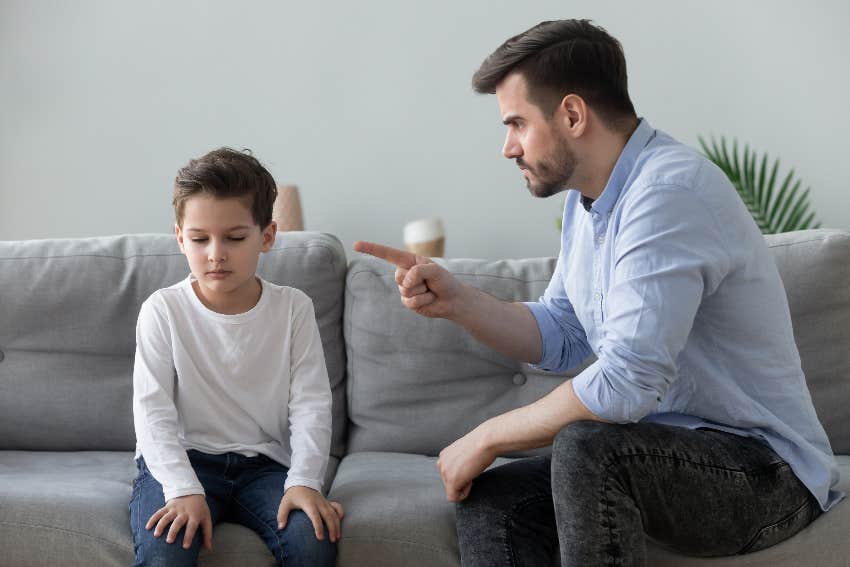Your Parents Likely Damaged You During Their Divorce If They Used These 10 Phrases
It can be incredibly damaging when divorcing parents say the wrong things to their kids.
 Chidy Young | Unsplash
Chidy Young | Unsplash We all say things we regret from time to time, but there is no more crucial time for parents to mind their words than during a divorce. Not only can the things they say come back to haunt them in divorce court, but, more importantly, they can do real damage to children.
So if you’re feeling frustrated, fed up, or ready to explode, take a deep breath, count to ten, and, above all, bite your tongue because there are things you should never, ever say to your children during a divorce.
Your parents likely damaged you during their divorce if they used these phrases:
1. 'Your father/mother is a deadbeat'
Saying anything bad about your spouse, whether it’s running down the father or saying mom is greedy, is an invitation to problems, as it puts the children right in the middle.
“Children are half of each parent,” says Dr. Nancy Mramor, health, media, and educational/child psychologist, and former trainer for parents in Pittsburgh’s Divorce Education program. “So when the parent is berated, the child feels berated, too. They may become defensive and protective of the criticized spouse, damaging the relationship with the criticizing parent.”
2. 'I’ll be lonely until you get back'
 fizkes / Shutterstock
fizkes / Shutterstock
By saying something like this, you might think that simply you’re letting your kids that you’ll miss them while they’re with your ex. However, what you’re doing is making them feel as though your happiness is somehow their problem, which can put undue stress and worry on your kids.
“Never parentify your children by making them feel responsible for your happiness,” says Benjamin Valencia II, partner, and certified family law specialist. “It should be the other way around. Kids should not have to worry about their parent’s unhappiness.”
3. 'I have to take your father/mother to court to get more money'
Sharing financial problems with your children is way out of line and puts weight on their shoulders that not only are they unequipped to carry, but that they should never have to in the first place.
“It’s okay to say that things have changed since the divorce and that spending on certain things may no longer be possible,” says Mramor, “but don’t burden them with adult issues concerning finances. Let them enjoy their childhood.”
4. “Daddy wanted us to stay together as a family but Mommy didn’t want to'
This is another way of putting children in the unenviable position of having to choose between one parent or another, even if it’s unconsciously. “Placing blame on the other parent only serves to increase the child’s confusion and sadness,” says Nadine Carey, a registered psychotherapist, and parenting coach.
“It sends a message that they should be choosing between parents because, after all, the one parent is to blame.”
5. 'Men are cheaters' or 'Women are liars'
These phrases, or other variations of them, have the potential to cause not only immediate harm but also lay the groundwork for future damage down the line, as they can cause children to form negative images about the other gender. “Children are watching you and listening to you,” says Mramor, “and you don’t want them to repeat the same pattern in their future relationships.”
6. 'If you weren’t so difficult, we wouldn’t be getting divorced'
When divorce happens, children will automatically blame themselves anyway, and phrases like this just confirm to them that their feelings are correct.
“It’s the parent’s responsibility to manage stress and disagreements between them, not the child’s,” says Ofra Obejas, a psychotherapist for children, adolescents, and families in Redondo Beach, California. “These statements make the child feel that if the child were somehow better, the parents wouldn’t have so many problems leading to divorce.”
7. 'You are just like your mother or father'
 fizkes / Shutterstock
fizkes / Shutterstock
Think about the message that this is sending to your child. You no longer want to be with your partner, so if you tell your child that they are somehow just like them, what will that make them think?
“Statements such as this cause the child to question whether they are at risk of losing your love,” says Craig S. Pedersen, a partner at Meyer, Olson, Lowy, and Meyers. “And can cause the child to question whether they can remain loyal to both parents.”
8. 'Daddy’s just moving away for a little while'
Avoid white lies or evasive answers to questions. Offer your kids the truth in an honest and age-appropriate manner.
“Kids need to know they live in a predictable universe that they can understand and predict to some degree,” says psychiatrist and sleep medicine specialist Dr. Alex Dimitriu. “A parent moving out of the home, along with a divorce, will require some explanation. Otherwise, a child may think the world is unpredictable. Both parents should agree on a gentle version of the truth, which can help a child navigate a very big change.”
9. 'Go to your room if you’re going to cry'
It can hurt to know the heartache your divorce is causing your child, and it can hurt even more to see them express that heartache in front of you. But, as hard as it is, you have to let them express those feelings, and, under no circumstances should they ever be suppressed.
“Divorce is scary for kids, especially when they aren’t old enough to express their emotions as precisely as adults,” says grief recovery specialist Shelby Forsythia. “[Saying this] shows your kids that you don’t want to see their ‘negative’ or ‘bad’ feelings and as a result, they will hide their emotions from you.”
10. 'You’re the ‘man/woman of the house now'
The thinking behind this phrase might be that you’re instilling in the child a sense of responsibility, but in reality, you’re simply burdening them with the notion that they somehow have to now assume an “adult” role in the household.
“Especially with younger children, statements like these tend to be taken literally,” says Carole Brody Fleet, author of When Bad Things Happen to Good Women and the forthcoming book, Loss is a Four-Letter Word. “No child, regardless of age, should be made to feel as though they need to assume adult roles and/or responsibilities.”
Jeremy Brown is a writer and editor. His writing has appeared in many magazines, websites, and newspapers around the world and he has authored special issues for TV Guide and the Discovery Channel, among more.

